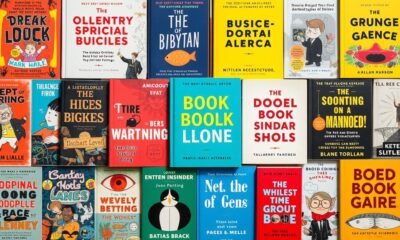Financial Success
Is Your Financial Plan Failing? Here’s the Mistake Most People Make
Struggling with financial goals? Discover the common error derailing many plans. Ensure “Is Your Financial Plan Failing” isn’t your worry.

Have you ever worried at night about your money future? You’re not alone. About 35% of adults feel their finances have gotten worse in the past year. Many spend more time planning vacations than their finances. This is why financial stress is so common.
Some of this stress comes from not seeing where our financial plans fail. By identifying and understanding these mistakes, you can start to fix your financial health. Taking control of your finances can secure your future and ease your worries.
Key Takeaways
- Over 50% of individuals do not have a financial plan in place.
- The median credit card interest rate was 24.62% in June 2024.
- The U.S. household personal savings rate stood at just 3.6% in April 2024.
- It is recommended to save three to six months’ worth of living expenses for emergencies.
- More than 70% of people do not regularly review their financial plan.
Understanding Common Financial Mistakes
Many people make financial mistakes that affect their stability. Not having a budget is a big mistake. It can lead to spending too much on things you don’t need. This means you might not have enough for important things. Keeping an eye on how you spend money helps you reach your goals.
It’s easy to guess wrong about how much you’ll spend. People often forget about regular costs like health care and taxes. This can leave a gap in your finances. Remember, every expense adds up over time.
Rushing into investments can also be a problem. Some invest based on feelings, without doing their homework. This can lead to bad investments and lost money. To avoid this, research and understand the market.
Ignoring debt is another issue. It’s important to focus on paying off debts with high interest. This helps avoid extra financial stress. Having a plan for paying debts and saving money is key for financial health.
By knowing these financial errors, you can avoid them. Make a good budget, understand your spending, and handle your investments smartly. Being aware helps you stay financially healthy and prepare for the future.
Identifying Personal Financial Pitfalls
Knowing the personal financial pitfalls is key to better money habits. Many fall into the trap of emotional spending and lifestyle inflation. These habits can throw off financial goals in no time.
You might not see it, but overspending has clear signs. Not paying off credit card balances monthly and struggling with bills are big signals. Avoiding savings also shows there could be deeper financial troubles.
Building good habits helps fight the bad ones causing money problems. Having an emergency fund for three to six months of expenses is a smart move. It helps you handle sudden expenses easily, keeping you from bad financial spots.
Planning for retirement is vital to avoid personal financial pitfalls. Sadly, many people don’t put money regularly into retirement accounts. Starting early is crucial as it lets your savings grow, setting up a secure future.
It’s important to understand credit and debt management too. Paying bills on time keeps your credit score healthy. Keeping credit use low avoids long-term debt. Setting up a solid plan for paying off debt is key.
In financial planning, setting clear and realistic goals is important. It encourages you to stay disciplined. Being honest and accountable about your finances makes you aware of your spending habits.
In conclusion, dealing with financial pitfalls needs awareness and proactive steps. Changing bad habits can guide you through money management challenges. This leads to a more stable financial future.

| Signs of Overspending | Consequences |
|---|---|
| Not paying off credit card balances | Accumulated interest and debt |
| Struggling to pay bills | Risk of late fees and damaged credit |
| No savings | Lack of financial security |
| Zero bank account balance | Financial instability |
| Hiding shopping habits | Increased stress and guilt |
Too Much Debt: A Recipe for Financial Disaster
Living with too much debt is like walking on a tightrope. It feels okay for a while but leads to stress. Knowing how debt affects you is key for your financial health. Many people borrow over and over, not seeing the emotional and financial harm. And when interest rates rise, managing debt is even more important.
Understanding Debt and Its Implications
Cities show the problems with managing debt. Many have confusing debt reports, so people don’t see the full financial picture. This confusion can cause bad decisions. Also, cities might count loans as income without showing what they owe. This is like people thinking debt is just a tool, not a risk. So, it’s vital to understand debt for both money planning and community health.
Strategies for Managing and Reducing Debt
To improve your finances, there are good ways to lower your debt. Check out these tips:
- Debt Snowball Method: Start by paying off small debts, keeping up with the bigger ones. This boosts your progress and spirit as debts disappear.
- Debt Avalanche Method: First tackle debts with high interest rates. This saves you money on interest, lowering overall debt costs.
- Budgeting and Tracking Spending: Make a budget for your money, spending, and debt payments. Watching your spending helps find ways to save and pay off debt faster.
- Extra Payments: Use any extra money, like bonuses, to pay down debt. This speeds up repayment and betters your financial state.
Like people, cities face debt troubles. Without careful financial plans, their debt can hurt their budgets. They might lean on sales tax or sell things to fix the budget, missing the bigger picture. Cities should adopt strong debt plans and be open about their finances. This way, they can aim for a better financial future.
| Debt Management Strategies | Advantages | Considerations |
|---|---|---|
| Debt Snowball Method | Boosts motivation, builds discipline | May cost more in interest over time |
| Debt Avalanche Method | Reduces interest payments significantly | Requires consistent determination |
| Budgeting | Increases awareness of spending habits | Requires ongoing adjustments |
| Extra Payments | Accelerates debt reduction | Needs surplus funds or bonuses |

Low Interest Rates: A Double-Edged Sword
Low interest rates make borrowing look appealing, tempting you to take more than needed. Thinking low rates always mean good borrowing can lead to too much debt. It’s vital to look at your finances closely before making big financial choices.
Borrowing Smartly in a Low-Rate Environment
The economy now has low returns on 10-year treasury bonds. This makes some want to refinance homes or buy riskier assets. Such decisions can have bad financial outcomes. When borrowing, think about:
- Interest-only loans may look good but can increase your debt over time.
- Think carefully if you can pay back new loans, as money troubles can happen fast.
- Compare what you might earn from investments to the debt you’re taking on.
When Debt Becomes a Burden
Taking more loans because of low interest rates can seem wise at first. But, it can become too much to handle quickly. In the past, owning assets showed that wealth gaps get bigger in these situations. Keeping an eye on your debt is important to not fall into too much debt.
Be aware of these risks:
| Aspect | Risks Involved |
|---|---|
| Household Debt | More financial pressure and the risk of losing your home |
| Investment Loans | Bad market conditions can cause big losses |
| Cash Flow | Struggles with daily expenses |
| Long-term Assets | Losing money instead of making a profit |
Managing debt well starts with knowing your financial situation. By being careful and not just going for low interest rates, you can avoid heavy debt.

Credit Cards: A Hidden Trap
Credit cards come with dangers that are not always obvious. Spending freely can quickly turn into a debt problem. This highlights the importance of having a budget.
Without careful planning, it’s too easy to get caught in credit card traps. Making only minimum payments can lead to growing interest charges. With retail card interest rates hitting 28.93% in October 2023, managing debt is crucial.
The average American has $6,218 in credit card debt. The younger Gen Z is using credit cards more than Millennials. This leads to more debt. Retail cards offer perks but can hurt your credit score with high utilization rates. Bryan Kuderna, a financial expert, advises against rushing into these cards without knowing the terms.
Some believe loyalty programs or sign-up offers save money. But, they might spend more on interest and fees than they save. Also, credit card cash advances add extra charges. Be careful with multiple cards to avoid sinking further into debt.
Before using them, review credit card terms and think about how you spend. Use retail cards wisely and always pay off balances quickly. Good budgeting can keep your finances in check, saving you from debt and securing your future.

Investment Choices: Are You Playing with Fire?
Understanding your investment choices is key when entering the financial markets. Many chase high returns without knowing the risks involved. It’s important to make smart decisions to navigate finance effectively.
Minimizing Risks in Investment Decisions
Investment risks differ based on your choices. To lower these risks, consider some strategies:
- Diversification: Spread your investments across different asset classes. This reduces reliance on any single investment.
- Research: Keep up with market trends. Analyze investments to know their history and potential future.
- Long-term Perspective: Don’t react quickly to market changes. A long-term view usually leads to better outcomes.
Understanding Market Trends and Your Portfolio
Staying updated on market trends is crucial for managing your portfolio well. Knowing about economic indicators and industry updates can lead to better investment choices. Consider these points:
- Market Analysis: Frequently analyze sector trends. This helps spot new opportunities and risks.
- Adaptability: Be ready to change your portfolio if the economy or market conditions shift significantly.
- Monitoring Performance: Check your portfolio’s performance often. Adjust it to match the current market situation.

Is Your Financial Plan Failing? Common Errors to Watch For
Knowing the signs of financial plan errors can keep you on track for financial success. Many overlook key factors that cause their financial plans to fail. Here are a few common mistakes to watch out for:
- Lack of Budgeting: Not having a budget plan can mess up your finances. A budget tracks your income and expenses. This helps you use your money wisely.
- Debt Mismanagement: Having debt with no clear plan can be stressful. It’s crucial to have a plan for paying off debt to ensure financial peace.
- Neglecting Savings Goals: Forgetting to save for the future, like emergencies or retirement, is risky. It’s important to have specific savings goals to protect your future.
- Ignoring Investment Strategies: Some people invest without knowing the market well. Learn about investments that fit your goals before making decisions.
Avoiding these mistakes can help you look at your financial plan in a new way. Here are steps to improve your financial strategy:
- Check and adjust your budget often to match changes in your money situation.
- Make a debt repayment plan that focuses on debts with high interest first.
- Set realistic savings targets and automatically put money into savings accounts.
- Talk to a trusted financial advisor to get a clear view of your investments.

The Importance of Budgeting and Cash Flow Management
Smart budgeting and cash flow management are key for staying financially stable. This is true for both personal budgets and small businesses. By using good budgeting methods, you can keep your spending in check. This helps make sure you can reach your money goals. Knowing your cash flow helps you plan for what’s coming, both money in and out. This leads to smarter choices about your finances.
Creating a Budget That Works for You
To make a budget that fits you, begin by fully understanding your money coming in and going out. First, figure out necessary expenses like housing, bills, and food. Then, think about what you spend on fun activities, such as going out or movies. Below are tips for building a budget that meets your personal needs:
- Set clear financial goals: Define what you aim for, both now and later.
- Use budgeting tools: Tools like apps or spreadsheets make tracking simpler.
- Include a buffer for unexpected costs: This adds flexibility to your budget.
- Regularly review and adjust: Sometimes, you need to change your plan based on new situations.
Analysis of Spending Patterns
Checking how you spend money regularly is crucial for handling your cash flow well. By looking closely at your spending, you might find areas where money is wasted. Go over your spending habits and—using your financial records—find patterns and possible improvements. Here are some strategies to consider:
- Keep track of all expenses: Detailed records show spending habits that may go unnoticed otherwise.
- Identify non-essential purchases: Find where you can reduce spending.
- Compare what you thought you would spend versus what you did: This checks if your budget was on target.
- Adjust your habits based on what you discover: Make changes for better financial health over time.

By integrating these budgeting methods, you’ll refine your approach to finances. You’ll likely see that smart budgeting and diligent cash flow management make a big difference. Whether for your own finances or a business, watching and understanding how you spend money keeps your cash flow positive. This sets a strong foundation for growth in your financial future.
Building a Safety Net: The Need for Buffers
It’s crucial to have a financial safety net for your financial health. Experts suggest saving three to six months’ worth of living expenses. But, job stability and personal finances might change how much you need to save. For example, if your job isn’t stable, it’s smart to save even more.
To find out how much you need to save, start by adding up your necessary monthly expenses. These include costs for your home, utilities, food, and any debts. Keep this money in a separate, high-interest savings account. This prevents you from spending it. Setting up automatic transfers to this account can help it grow steadily.
Maybe you could cut back on things you don’t need, like extra subscriptions or eating out. Doing so will help you save faster.
Your needs for emergency funds may change with big life events like getting married, having kids, or buying a house. Update your savings goals when these changes happen. You can also boost your savings by using extra money from tax returns or starting a side job. Having a strong financial cushion is comforting. It also makes you better prepared for tough times.
FAQ
What are the most common financial mistakes people make?
How can I identify my personal financial pitfall habits?
What strategies can help me manage and reduce my debt?
Should I take advantage of low interest rates?
What are the dangers associated with credit card use?
How can I minimize risks when making investment choices?
What are the primary common errors that signify a failing financial plan?
How can I create an effective budget?
Why is having a financial safety net important?
Financial Success
Don’t Wait! Why Right Now Is the Best Time for Seniors to Start Writing Fiction
Have you ever considered how your life stories can inspire others? Discover why now is the perfect time to start your writing journey.

Don't wait! Now's the ideal time for you to start writing fiction. Writing enhances your mental well-being and allows you to express your life experiences, giving you a unique voice. You've got stories to tell, and your wisdom can resonate deeply with readers. Discovering creative outlets not only reduces stress but also connects you with others in supportive writing communities. Finding just a few minutes each day can lead to meaningful progress. Embrace this opportunity to share your narrative, and you'll soon discover the enriching path ahead, opening doors to creativity and connection.
Key Takeaways
- Writing now enhances mental well-being, reducing stress and fostering relaxation, particularly beneficial for seniors.
- Life experiences provide rich material for storytelling, allowing seniors to share authentic narratives and inspire others.
- Engaging in writing promotes cognitive function, improving memory retention and mental agility as one ages.
- Supportive writing communities exist, offering encouragement and resources that help build confidence and overcome self-doubt.
- Technology simplifies the writing process, making it easier for seniors to express their creativity and publish their work.
Importance of Writing Now

Writing now is essential for seniors seeking fulfillment and well-being. Engaging in writing can greatly enhance your mental health and life satisfaction. If you start writing fiction, you can tap into your rich life experiences, creating deeper stories and relatable characters that resonate with readers.
Incorporating creative activities like writing can also promote relaxation and reduce stress, much like yoga for back pain, which emphasizes holistic management. By embracing this creative pursuit now, you avoid the regrets that come with delaying your passions, especially as health and cognitive abilities may decline over time.
Remember, you don't need to write a novel overnight. Small, consistent writing efforts can lead to meaningful progress and encourage you to embrace the present moment. This is an ideal time to cultivate your creative passions and express your unique voice.
The writing community values diverse perspectives more than ever, and your experiences can add depth to the literary landscape. Don't let opportunities slip away. You have a wealth of stories to tell, and writing can be a fulfilling way to share them.
Immerse yourself in your writing journey today, and discover the joy and satisfaction it brings. The time is now—embrace your creativity and start writing!
Overcoming Age-Related Barriers

You've lived through a wealth of experiences that can enrich your writing, so embrace those stories instead of doubting your abilities.
Consider the power of heartfelt expressions of love that can inspire your narratives.
It's natural to wrestle with self-doubt, but remember that your unique perspective can resonate with readers.
Finding time to write amidst life's demands is key, and with the right mindset, you can turn those challenges into opportunities for creativity.
Embracing Life Experiences
Embracing the rich tapestry of life experiences can empower older writers to craft stories that resonate deeply with readers. You've lived through significant events—parenting, career challenges, and personal triumphs—that provide a wellspring of authentic material.
These experiences enrich your storytelling, allowing you to create complex characters and explore profound themes that younger writers may overlook. Additionally, understanding trust issues with boyfriends can add layers to your narratives, as emotional complexity is often rooted in relationships.
As an older writer, you possess an emotional depth that enhances your narratives. You've navigated life's ups and downs, giving you unique insights into human behavior and relationships. This complexity is invaluable in fiction, where readers crave relatable and engaging characters.
Many successful authors debuted later in life, showing that age should be viewed as an advantage rather than a barrier. Your perspective is a treasure trove for storytelling, and the literary world welcomes it.
Joining a community of fellow older writers can also bolster your confidence. These supportive connections can help you share your journey, collaborate on ideas, and overcome insecurities.
Challenging Self-Doubt
Self-doubt can loom large for older writers, often fueled by societal ageism and internal critics. However, it's essential to recognize that your life experiences enrich your storytelling, providing unique perspectives that younger writers may lack.
Embrace the emotional maturity you've gained; it allows for deeper character development and more authentic narratives. As you navigate this journey, remember that philosophical exploration encourages deeper self-reflection which is fundamental in shaping your writing voice.
If you're feeling insecure about your age, consider enrolling in a writing course designed for seniors. These courses not only offer valuable skills but also connect you with a supportive community of fellow writers.
Sharing your work in this environment fosters encouragement and validation, helping to combat feelings of inadequacy.
Reframe the narrative around aging—view it as an opportunity for growth and exploration rather than a barrier to success. Remember, research shows that writers who start later in life often draw from a wealth of experiences, creating richer, more resonant stories.
Challenge those internal critics by acknowledging your unique voice and perspective. Your story deserves to be told, and now is the perfect time to share it.
Immerse yourself in your writing journey with confidence, knowing that you have so much to offer.
Finding Time to Write
Finding time to write can feel like an intimidating task, especially when daily responsibilities pile up. However, many seniors underestimate their ability to carve out moments for creativity. By dedicating just 15-30 minutes a day, you can make significant progress over time.
Balancing caregiving, household tasks, and writing is achievable with effective time management. Prioritize your writing sessions during quiet moments, or use a timer to keep you focused.
Consider creating a dedicated writing space, even if it's just a small corner in your home. This can signal to your mind that it's time to write, helping you establish a routine.
Joining writing groups or communities can also provide the accountability and motivation you need, making it easier to prioritize finding time to write.
Plus, technology can be your ally. Voice-to-text software or writing apps can help you overcome physical barriers like arthritis or declining fine motor skills, allowing for more accessible writing opportunities.
Life Experience as a Strength

Life Experience as a Strength
Drawing on a lifetime of experiences, seniors bring a unique richness to their storytelling that younger writers often lack. Your life experiences can serve as a powerful foundation when you decide to write a novel. Here are a few ways your journey enhances your fiction:
1. Relatable Themes: You've navigated significant life events like parenting, career challenges, and personal triumphs. These experiences provide authentic material that resonates with readers.
Additionally, understanding complex emotional dynamics, such as those found in BPD relationships, can enhance your character development and plot.
2. Emotional Depth: With age comes emotional maturity. You can create nuanced characters that reflect the complexities of human relationships and emotions, making your stories more compelling.
The rich emotional tapestry you've woven through your life allows you to portray feelings and struggles more vividly.
3. Expertise in Specific Fields: If you have specialized knowledge, you can infuse your narratives with insights that add authenticity and detail.
This expertise can elevate your story and engage readers on a deeper level.
Creative Expression and Well-Being

Engaging in writing fiction can boost your mental health and foster personal growth in meaningful ways. As you express your thoughts and emotions on the page, you might find stress and anxiety easing, while also sharpening your cognitive skills.
This creative outlet not only helps you process life experiences but also connects you to your own story, enhancing your overall sense of well-being. Additionally, it allows for emotional and psychological growth, similar to how key domains of development influence our understanding of self throughout life.
Writing fiction can serve as a critical period for expression, leading to new discoveries about oneself.
Enhancing Mental Health
Creative writing offers a powerful way for seniors to enhance their mental health and well-being. Engaging in creative writing not only provides an enjoyable pastime but also serves as a therapeutic outlet, much like how music therapy enhances emotional well-being.
Here are three key benefits you can gain from writing fiction:
- Emotional Processing: Writing allows you to express and process emotions, helping you build emotional resilience and reduce symptoms of anxiety and depression.
- Cognitive Boost: Regular creative writing can improve your cognitive function and memory retention, keeping your mind sharp as you age.
- Sense of Purpose: Crafting stories fosters a sense of accomplishment and purpose, essential for overall well-being in later life.
Fostering Personal Growth
Writing fiction not only enhances mental health but also opens doors to personal growth and self-discovery. When you started writing, you likely felt an immediate sense of relief and fulfillment, transcending any financial concerns. Engaging in storytelling nurtures your creativity, providing a valuable sense of purpose in your later years, while also fostering curiosity and exploration that can lead to new experiences and learning opportunities.
Writing can be a therapeutic outlet, helping you navigate life's challenges while sharing your unique experiences. As you craft your narratives, you explore your thoughts and feelings, fostering deeper self-awareness. This journey of creative expression can lead to significant personal growth, allowing you to reflect on your life and the lessons learned along the way.
Consistent writing practice—no matter how small—cultivates resilience and combats feelings of isolation that many seniors face. By embracing your creativity, you not only enrich your own life but also contribute your stories to the world.
Finding Time to Write

Finding time to write can feel like a challenging task amidst the hustle and bustle of daily life, especially for seniors juggling various responsibilities.
However, you can carve out those precious moments to release your creativity. Understanding the importance of budgeting your time can play a significant role in prioritizing your writing endeavors.
Here are a few strategies to take into account:
- Set Short Blocks: Dedicate just 15-30 minutes each day to writing. These small sessions can accumulate into significant progress over time.
- Establish a Routine: Identify quiet moments in your day, like early mornings or after the kids go to bed, to write without interruptions. This helps balance caregiving duties while nurturing your creative side.
- Utilize Weekends: Designate specific days for writing where you can immerse yourself in your projects without daily distractions. Longer uninterrupted periods can lead to deeper focus and productivity.
Community Support and Resources

Connecting with others who share your passion can make a world of difference in your writing journey. Joining writing communities, whether online forums or local workshops, provides you with valuable feedback and support from peers who understand the unique challenges and benefits of writing later in life.
This community support can motivate you to keep writing and improve your craft, while also emphasizing the importance of content quality and topical authority in establishing your voice.
Resources like Aliventures offer newsletters and free eBooks filled with tips and inspiration tailored to aspiring authors of all ages. Engaging with social media platforms allows you to connect with fellow writers and audiences, expanding your reach and fostering collaboration on creative projects.
The KDP Community is another great resource, providing guides, tutorials, and networking opportunities that empower you to navigate the self-publishing landscape effectively.
Additionally, participating in writing conferences and events gives you the chance to learn from industry experts and build connections that can enhance your writing journey.
Navigating Challenges in Writing

Many older writers face unique challenges that can make the writing process feel overwhelming. Balancing caregiving and financial responsibilities often leaves little time to write your novel. Yet, prioritizing your passion for writing is vital.
Here are three key challenges you might encounter:
- Time Management: With various responsibilities, carving out dedicated writing time can be tough. Consider setting a daily or weekly schedule to guarantee writing remains a priority.
- Ageism: It's common to feel insecure about your age in the writing community. Remember, many successful authors debuted later in life, proving it's never too late to pursue your dream.
- Publishing Complexities: Steering through copyright and royalties can seem intimidating. However, with the right resources and community support, you can simplify this process.
While negative reviews may sting, your life experiences can help you develop resilience.
Engage with online writing communities and attend workshops for valuable feedback and motivation. By tackling these challenges head-on, you can enjoy the rewarding journey of writing your novel and sharing your stories with the world.
Techniques for Crafting Stories

Often, the most compelling stories stem from your own life experiences and emotions. As a senior, you likely have a wealth of insights to draw from, enriching your narratives.
To start writing effectively, focus on key narrative elements like character development, plot structure, and pacing. These techniques improve with practice, so consider joining workshops or online courses for valuable feedback.
Engaging in writing exercises can also spark your creativity. Try using prompts or timed free writing to overcome writer's block and make story crafting more accessible. These methods can help you generate ideas and explore different styles.
Additionally, read widely across genres; this exposure informs your writing techniques and helps you analyze various narrative styles, ultimately shaping your unique voice in fiction.
Don't shy away from utilizing narrative techniques like flashbacks or non-linear storytelling. These approaches add complexity and fresh perspectives to your stories, capturing your readers' attention in innovative ways.
Embrace your life experiences, experiment with different techniques, and you'll discover that starting to write fiction can be both fulfilling and enjoyable.
Embracing New Writing Opportunities

As you embrace new writing opportunities, you'll find that your life experiences can serve as a powerful foundation for your stories. Your unique perspective adds depth and authenticity, making your narratives resonate with readers.
Many successful authors have debuted later in life, proving that age enhances literary voice and emotional impact.
Here are three ways to immerse yourself in these new writing opportunities:
- Join Writing Communities: Connect with like-minded individuals who share your passion. Online platforms offer resources and support to help you navigate your writing journey.
- Participate in Workshops: Engaging in workshops provides valuable feedback and motivation. You'll not only improve your craft but also build confidence in your writing abilities.
- Explore Diverse Voices: The demand for diverse narratives means your stories have an enthusiastic audience. Don't hesitate to share your experiences, as they can greatly enrich the literary landscape.
Embracing new writing opportunities can be a rewarding venture. So, take the plunge, harness your rich life experiences, and let your voice shine through your writing.
Frequently Asked Questions
Is 70 Too Old to Become a Writer?
No, 70 isn't too old to become a writer. Your life experiences and wisdom can enhance your storytelling. Embrace your unique voice, and start sharing your narratives; the world is enthusiastic to read them.
Is 60 Too Old to Start Writing?
No, 60 isn't too old to start writing. You've got a lifetime of experiences to draw from, and your unique perspective can enrich your storytelling. It's the perfect time to share your voice!
What Age Is Too Late to Start Writing?
There's no age that's too late to start writing. Your life experiences can enrich your storytelling, offering unique perspectives. Embrace your voice and share your stories; they're valuable and worth telling, no matter your age.
Is 50 Too Old to Start Writing?
Research shows that many successful authors publish their first works after 50. You're never too old to start writing! Your life experiences enrich your storytelling, making your narratives authentic and relatable. Immerse yourself!
Conclusion
So, don't wait any longer! Embrace your unique voice, share your rich experiences, and let your stories unfold. You've got the wisdom, the creativity, and the passion to inspire others. By writing now, you're not just crafting tales; you're connecting with your inner self, enriching your well-being, and building a community. The world needs your stories today—so pick up that pen or open that laptop, and let your imagination soar! Your time is now.
Financial Success
Retired and Rich: How Senior Writers Are Earning Big With Fiction
Join the journey of retired seniors turning their rich life stories into lucrative fiction careers—discover how you can start your own writing adventure today.

As a senior writer, you can convert your rich life experiences into a lucrative fiction career. Age doesn't limit your creativity; in fact, your wealth of stories adds depth and authenticity to your work. Financial stability allows you to fully invest your time in writing, free from job constraints. Self-publishing offers you control and flexibility, helping your voice reach a wider audience. While challenges like health or social network limitations may arise, using effective time management strategies and setting clear goals can pave your path to success. There's more to explore about this rewarding journey ahead.
Key Takeaways
- Seniors leverage their wealth of life experiences to create rich, relatable fiction that resonates with readers.
- Financial stability allows older writers to invest time and resources into their writing projects freely.
- Self-publishing provides seniors with creative control and the ability to bypass traditional publishing pressures.
- Continuous learning enables seniors to adapt to new technologies, enhancing their reach to wider audiences.
- Building supportive author communities fosters collaboration and networking opportunities, essential for successful writing careers.
Overcoming Age Misconceptions

Many might assume that age limits creativity and writing ability, but that couldn't be further from the truth. Consider the inspiring example of an 86-year-old WWII veteran who thrived in a writing class, showcasing that dedication and hard work can lead to remarkable achievements at any age.
As an elderly person, you possess a wealth of life experiences that enrich your storytelling, providing depth and credibility that younger writers often lack. Additionally, as credit card debt exceeds $930 billion in the US, many seniors find themselves in a better financial position, allowing them to invest in their passions without financial constraints.
While some think older individuals struggle with new technologies, this misconception is easily debunked. Many senior writers actively embrace continuous learning, adapting to today's digital landscape to share their new books with a wider audience. The financial freedom that often comes with age, especially for those with an average net worth of $1.1 million, allows you to focus on writing without the constraints of a full-time job.
As the visibility of older authors increases, societal stigma fades, proving that creativity and talent can flourish at any age. By breaking down these misconceptions, you can inspire others and carve your own successful path in the world of writing, regardless of your age.
Advantages of Writing in Retirement

In retirement, you can open up a world of opportunities for creative expression through writing. With financial stability, thanks to an average net worth of $1.1 million for those aged 75 and up, you can invest time and resources into writing books without the constraints of a full-time job.
This newfound freedom allows you to dedicate ample time to both writing and promotion. Additionally, many retirees find joy in expressing heartfelt emotions through storytelling, reminiscent of the heartfelt expressions of love that celebrate personal connections.
Your life experiences provide a rich tapestry for storytelling, giving your narratives depth and credibility that can truly resonate with readers. The misconception that age limits your writing ability is just that—a misconception. Many successful senior writers, like Nancy Boyarsky, prove that creativity and productivity can flourish at any age.
Moreover, self-publishing offers you the freedom and control to share your work with the world. You can enjoy writing without the pressure of traditional publishing timelines and restrictions.
Whether you aim to make any money or simply want to express yourself, writing in retirement can be a fulfilling and lucrative endeavor. Embrace this opportunity to explore your creativity and connect with others through your stories.
Common Challenges for Senior Writers

As a senior writer, you might find that health issues can drain your energy and disrupt your writing routine.
The importance of having a solid financial planning for assisted living and other long-term considerations can also weigh heavily on your mind.
Additionally, losing friends over the years can limit your social network, making it tougher to promote your work.
These challenges can create significant hurdles in your journey as a fiction writer.
Health and Energy Issues
While aging can bring a wealth of experience and insight, it often also introduces health and energy challenges that impact your writing journey. Common health issues can lead to decreased energy levels, which may reduce your writing capacity and overall productivity.
It's important to reflect on the role of cold medications in managing seasonal illnesses that may also affect your creativity. Additionally, recognizing how these factors can affect your routine and creative flow is fundamental.
Caregiver responsibilities for aging relatives can further disrupt your writing schedule, making time management a significant skill. Balancing your writing with personal obligations can be tough, but it's essential to carve out dedicated time for your craft.
Additionally, as technology evolves, continuous learning becomes imperative. You might find that health limitations make it harder to adapt to new tools and platforms, which can hinder your ability to stay relevant in today's digital landscape.
Despite these challenges, many senior writers demonstrate resilience and determination. By developing strategies to manage your health and responsibilities, you can maintain your passion for writing and continue sharing your stories with the world.
Embrace this journey and find ways to overcome obstacles while keeping your creativity alive.
Social Network Limitations
Many senior writers encounter significant hurdles due to shrinking social networks, which often stem from the loss of friends and peers. This reduction can limit your promotional reach and opportunities for collaboration in the writing world.
Adapting to new technologies, especially social media, can be particularly challenging. You might feel overwhelmed by the constant need to learn how to market your work effectively and engage with readers online. Moreover, just as building codes and zoning laws vary for tiny homes, the landscape of social media and digital marketing can be complex and intimidating for writers trying to navigate their online presence.
Additionally, caregiving responsibilities can additionally restrict your social interactions and networking opportunities, making it difficult to build connections that are essential for promoting your writing as well. It's easy to fall into complacency, especially if you develop a sense of entitlement about your craft. However, remaining proactive is imperative for your success.
To counteract these limitations, consider joining local writing groups where you can make friends and find support. These communities can offer valuable encouragement and help you expand your social network.
Effective Time Management Strategies

To make the most of your writing time, you'll want to prioritize your tasks and set clear goals for what you want to achieve.
Establishing a consistent routine can help you stay focused and productive, minimizing distractions that can derail your progress.
Additionally, consider tracking your income and expenses related to your writing career, as a solid budgeting plan can provide financial clarity.
Prioritize Writing Tasks
As a retiree diving into the world of writing, effectively managing your time is essential for achieving your goals. With more time at your disposal, you can establish a structured routine that enhances productivity. Start by identifying your writing goals—whether it's book writing or simply engaging in a beloved hobby. This clarity helps you prioritize tasks according to your personal aspirations.
To manage your time efficiently, break down larger projects into smaller, manageable tasks. This approach not only maintains your focus but also reduces the feeling of overwhelm. Here's a simple table to help you prioritize your writing tasks:
| Task | Priority Level | Time Needed |
|---|---|---|
| Outline book plot | High | 2 hours |
| Write daily chapter | Medium | 1 hour |
| Edit previous work | Low | 30 minutes |
| Research publishing | Medium | 1 hour |
| Read writing guides | Low | 45 minutes |
Establish a daily writing routine, dedicating specific hours to your craft. Utilize calendars or writing apps to schedule sessions and track progress, ensuring you balance writing with other commitments from your day job.
Set Clear Goals
Having a structured routine lays the groundwork for setting clear writing goals. As a retired author, you have the unique opportunity to harness your time effectively, allowing you to prioritize writing, study, and marketing.
Start by identifying specific objectives tailored to your interests, whether it's creating a legacy, enjoying a hobby, or pursuing a full-fledged writing career.
Utilizing SMART goals—Specific, Measurable, Achievable, Relevant, and Time-bound—can greatly enhance your focus and effectiveness. For instance, instead of saying, "I want to write more," you might say, "I'll write 500 words every morning for the next month." This clarity gives you a tangible target to work toward.
Regularly evaluating your progress toward these writing goals keeps you motivated and helps you adapt your strategies as your circumstances evolve.
Remember, retirement age doesn't mean slowing down; it's an opportunity to dive deeper into your passion. By setting clear goals, you'll not only make the most of your time but also increase your chances of achieving the success you desire in your writing journey.
Establish a Routine
Creating a daily writing routine is essential for retired authors who want to maximize their creative output. By establishing a routine, you can dedicate specific time slots for daily writing, ensuring that your craft remains a priority despite other responsibilities. This consistent practice not only enhances productivity but also fuels creativity.
Setting clear writing goals can greatly improve your focus and motivation. Tracking your progress allows you to celebrate small achievements, making the writing process more rewarding. Consider employing time management techniques like the Pomodoro Technique to maintain concentration during your writing sessions.
Here's a simple table to help you visualize how to structure your routine:
| Time Slot | Activity |
|---|---|
| 9:00 AM – 10:00 AM | Daily Writing |
| 10:15 AM – 11:00 AM | Review Writing Goals |
| 11:15 AM – 12:00 PM | Online Course/Workshop |
Setting Clear Writing Goals

Setting clear writing goals is essential for retired writers who want to channel their time and energy effectively. Whether you're creating a legacy, enjoying a hobby, or pursuing a career, defining your purpose shapes your metrics for achievement.
Start by using life expectancy calculators to establish a timeline for your projects. This helps you prioritize and plan your writing endeavors. Additionally, embracing a balance between technology use and creative expression can inspire innovative ideas and enhance your storytelling.
If you're a hobby writer, engage in activities like reading, joining critique groups, and attending writers' conferences to provide structure. These interactions not only enhance your craft but also offer opportunities for making friends who share your interests.
For career writers, establishing a daily writing routine is vital. Stay informed about current trends and network with other writers to boost your chances of success in the competitive landscape.
Additionally, create a budget for production costs to manage your finances while pursuing your goals. By setting clear writing goals, you'll stay focused, motivated, and on track to achieve your dreams, whether it's writing that bestseller or simply enjoying the process of storytelling.
Embrace your passion and watch your writing journey unfold!
Tips for Aspiring Legacy Writers

As you commence your journey as a legacy writer, it's important to keep a few key strategies in mind. First, utilize life expectancy calculators to determine a realistic timeline for your projects. This guarantees you have ample time to complete and publish your works. Next, create a budget for production costs—editing and design are essential investments that can enhance the quality of your writing and increase reader engagement.
Additionally, establish clear writing goals to focus your efforts on creating a meaningful body of work. Remember, your legacy is built over several years, so consistent progress is imperative. Finally, embrace continuous learning to adapt to new writing and publishing technologies, keeping you competitive in the evolving literary landscape.
Here's a quick reference table to help you stay on track:
| Strategy | Importance | Action Item |
|---|---|---|
| Realistic Timeline | Guarantees completion | Use life expectancy calculators |
| Budget Planning | Manages finances | Outline editing & design costs |
| Continuous Learning | Stays competitive | Explore new writing tools |
Guidance for Hobbyist Authors

If you're diving into the world of writing as a hobby, it's crucial to actively seek out resources that can enhance your skills. Start by engaging in regular reading; it'll expose you to different styles and techniques. Many writers also find inspiration from family photoshoot fails that showcase humor and creativity, which can spark unique story ideas.
Joining critique groups can also be invaluable, as they provide constructive feedback that helps you grow as a writer.
Set clear writing goals, like completing a certain number of pages or chapters each month. This can keep you focused and guarantee consistent progress on your projects.
Don't overlook the importance of attending writers' conferences. These events offer fantastic networking opportunities and insights into the publishing industry, which can be particularly beneficial for hobbyist authors looking to understand their craft better.
Additionally, subscribe to writing podcasts for ongoing education and inspiration. They can keep you motivated and informed about the latest writing trends.
Finally, consider investing in writing software and tools that can streamline your process and boost productivity.
Strategies for Career-focused Writers

How do career-focused writers find success in a competitive landscape? It starts with establishing a daily writing routine. By committing to a regular schedule, you maintain productivity and consistency, which are key to completing projects and meeting deadlines.
Additionally, understanding the business side of writing is essential. Stay informed about current writing trends and market demands to tailor your content effectively. This knowledge can greatly improve your chances of success, as it helps you align your work with what readers are seeking.
Minimizing distractions during your writing sessions is another important strategy. By creating a focused environment, you enhance your creativity and efficiency, allowing you to complete projects more effectively.
Moreover, investing in ongoing education is imperative. Participate in writing workshops or take online courses to equip yourself with new skills and techniques that can elevate your craft.
This not only sharpens your abilities but also keeps you relevant in a constantly evolving industry.
Building a Supportive Author Community

What makes a supportive author community invaluable for writers at any stage? Engaging with local writing groups can be a game-changer. These communities allow you to share experiences, resources, and encouragement, especially as a retired author.
Additionally, the importance of user consent management in fostering a respectful and collaborative environment can't be overstated. Online platforms like Absolute Write offer moderated spaces for discussing challenges across genres, ensuring you never feel alone in your writing journey.
Building an appealing author website is essential for reader engagement, and you can find free video courses to help you create and maintain that online presence. Community competitions, like NaNoWriMo, not only spark creativity but also foster camaraderie among authors of all ages.
Participating in these challenges can inspire you to push your limits while connecting with fellow writers.
Moreover, establishing SMART goals within your community helps you define your marketing strategies and track your progress effectively. When you're surrounded by supportive authors, you gain insights and motivation that can elevate your writing career.
Frequently Asked Questions
How Much Does the Average Fiction Writer Make per Book?
The average fiction writer makes between $5,000 and $20,000 per traditional book, while self-published authors might earn $1,000 to $10,000. Success often depends on marketing, audience reach, and maintaining multiple titles.
Is 70 Too Old to Write a Book?
They say, "You're never too old to learn." So, no, 70 isn't too old to write a book. Your life experiences can enrich your storytelling, and you've got plenty of time to share your voice.
Is There a Demand for Fiction Writers?
Yes, there's a strong demand for fiction writers today. Readers crave diverse narratives and authentic characters. Your unique experiences can resonate with audiences, so don't hesitate to share your stories and connect with them.
At What Age Do Writers Peak?
You might find that many writers peak in their 60s and 70s. With life experiences enriching their storytelling, they often produce deeper insights and complex narratives, showcasing that age can enhance literary creativity.
Conclusion
So, why not embrace your passion for writing in retirement? With the right mindset and strategies, you can transform your life experiences into enthralling stories that resonate with readers. Remember, age is just a number, and your unique perspective can be your greatest asset. Whether you're aiming for a legacy or pursuing a career, the journey can be incredibly rewarding. Immerse yourself in your writing adventure and discover the richness it brings to your life!
Financial Success
Tech-Savvy Marketing: How AI Can Help Senior Authors Promote Books Effortlessly
Can AI truly revolutionize book promotion for senior authors? Discover the effortless strategies that could transform your marketing approach.

AI can transform the way you promote your books effortlessly. With personalized email campaigns, targeted ads, and automated content generation, you can reach your audience more effectively without needing deep tech knowledge. AI analyzes reader behaviors to craft campaigns that resonate, and it optimizes your marketing strategies in real-time. This means less wasted time and money while increasing your visibility and sales. You'll find that these tools are not only powerful but also user-friendly, making them perfect for senior authors. Stick around to discover how AI can elevate your marketing game even further.
Key Takeaways
- AI-driven tools empower senior authors to automate marketing tasks, allowing them to focus more on writing and less on promotions.
- Personalized marketing strategies, powered by AI, enhance reader engagement by tailoring recommendations based on past purchasing behaviors.
- Predictive analytics help authors anticipate market trends, optimizing their marketing strategies for better audience targeting and higher conversions.
- Automated content generation streamlines promotional material creation, increasing marketing output without compromising quality.
- Access to advanced AI tools levels the playing field, enabling independent and senior authors to effectively compete in the publishing industry.
Evolution of Book Marketing

How has book marketing changed over the years? The evolution of book marketing has shifted dramatically from traditional methods like physical tours and print media to a focus on digital platforms.
You're now seeing authors leverage social media platforms and online bookstores, which enhance reach and engagement like never before. The rise of eBooks and audiobooks has diversified purchasing methods, allowing you to connect with a broader audience.
Additionally, many authors are finding inspiration in thematic coherence in music to shape their marketing narratives and connect emotionally with readers.
AI has become a game-changer in book marketing strategies. It enables personalized advertising, using data analytics to understand reader preferences and optimize your marketing campaigns effectively.
The publishing industry is increasingly merging traditional methods with digital approaches, fostering collaboration between publishing houses and tech companies to enhance marketing efforts.
As you navigate these evolving trends, AI tools are reshaping your marketing dynamics, offering innovative solutions that streamline your promotional activities.
With these advancements, you can improve sales forecasting and engage with your target audience more effectively. Embracing these changes not only helps you keep up but also allows you to stand out in a competitive market.
AI-Driven Personalization Strategies

As AI continues to reshape book marketing, personalization strategies are becoming a key focus for senior authors looking to engage their audience meaningfully. By utilizing AI-driven personalization strategies, you can create targeted marketing campaigns that resonate with your readers.
AI analyzes past purchasing behaviors to generate personalized recommendations, helping you reach specific demographics effectively. With the growing demand for AI ethicist jobs, understanding the ethical implications of AI-driven marketing also becomes essential to foster trust with your audience.
Custom email marketing campaigns powered by AI enable you to craft tailored messaging that aligns with individual reader preferences, enhancing reader engagement and increasing conversion rates. Additionally, AI tools optimize ad placements based on user interactions, ensuring your ads are shown to the most relevant audiences while minimizing wasted ad spend.
With AI analytics, you can track reader engagement across various digital channels, allowing for meaningful interactions that foster stronger connections with your audience. These strategies shift your marketing from generic advertising to highly targeted campaigns, enhancing marketing effectiveness and improving your overall outreach.
Embracing AI-driven personalization not only streamlines your marketing efforts but also makes your readers feel valued, ultimately leading to a successful book promotion strategy.
Targeting and Engagement Techniques

Targeting the right audience is essential for senior authors enthusiastic to boost engagement and drive sales. By leveraging AI algorithms, you can identify specific reader demographics and preferences, making your marketing efforts more effective.
Additionally, utilizing effective email marketing strategies can greatly enhance your outreach. Here are three techniques to enhance your targeting and engagement strategies:
- Utilize Predictive Analytics: Use AI to predict reader behavior based on past interactions. This allows you to tailor your marketing campaigns to resonate with your potential readers, increasing conversions.
- Implement Targeted Advertising: Focus your ad spend on audience segments most likely to respond. This minimizes waste and maximizes your return on investment, ensuring that your marketing budget is well spent.
- Optimize Content Strategy: Analyze engagement metrics from social media platforms to determine the best times to post and the types of content that work best. This data-driven approach helps in crafting personalized marketing messages that resonate with your audience.
Effective Campaign Creation

Creating an effective marketing campaign for your book requires a strategic blend of data and creativity. By leveraging AI tools, you can analyze historical sales data to pinpoint the best release timings for your campaigns, ensuring maximum visibility and engagement rates.
Additionally, understanding your audience's common financial terms can enhance how you communicate the value of your book. Personalized marketing becomes effortless when you utilize AI to assess past purchasing behaviors. This enables you to tailor your promotional materials to specific demographics, enhancing connection with your audience.
Automated content generation through AI streamlines the creation of promotional materials, so you can focus more on writing while still maintaining a robust marketing presence.
With AI-driven audience segmentation, you can craft highly targeted campaigns that minimize wasted resources, improving overall campaign efficiency.
Real-time analytics allow you to track your marketing campaigns' performance and make necessary adjustments on the fly. By monitoring engagement rates, you can optimize your campaigns to boost conversion rates effectively.
In this data-driven landscape, combining creativity with AI's analytical prowess sets the foundation for successful marketing efforts, empowering you to engage your readers like never before.
Future Trends in AI Marketing

While the landscape of AI marketing continues to evolve, authors should anticipate several key trends that will shape their strategies moving forward. Embracing these advancements can enhance your marketing efforts and boost reader engagement. For instance, the ability to leverage consumer behavior insights from successful industries, such as precious metal investments, can provide valuable lessons in targeting and engagement.
- Predictive Analytics: This will allow you to forecast reader behavior and optimize your marketing strategies in real-time based on historical data, guaranteeing you reach your audience more effectively.
- Dynamic Pricing: As AI technologies advance, you'll be able to adjust book prices in response to market demand and consumer purchasing behavior. This flexibility can greatly enhance your sales potential.
- AI-Driven Content Creation: Expect tools that generate tailored promotional materials, improving the quality of your marketing content. This can save you time and help you connect better with readers.
Moreover, the integration of augmented reality (AR) and virtual reality (VR) into your campaigns will create immersive experiences, making your books more discoverable.
However, keep in mind the ethical considerations surrounding AI-generated content, as clearer regulations in the publishing industry will guarantee transparency and accountability in your marketing practices.
Stay ahead of these trends to maximize your impact!
AI's Impact on Publishing

AI's Impact on Publishing
The rise of AI in publishing is transforming how senior authors engage with their audiences. With AI in book marketing, you can analyze vast datasets, including sales figures and social media trends, to pinpoint reader interests and emerging genres. This helps you effectively target your marketing efforts, ensuring your message resonates with potential readers.
Additionally, leveraging content relevance and authority can enhance your marketing strategies, making them even more impactful.
AI's predictive analytics can forecast reader behaviors, allowing you to anticipate market trends and adjust your marketing strategies accordingly. This proactive approach maximizes engagement and sales, giving you an edge in today's competitive landscape.
Moreover, AI enables automated content generation, streamlining the book promotion process and freeing up your time for writing. You can develop personalized marketing campaigns tailored to specific audience segments, enhancing the relevance and effectiveness of your promotional efforts.
In the digital age, the democratization of AI-driven marketing tools empowers both independent and senior authors to compete effectively. Embracing these innovations not only simplifies your marketing tasks but also elevates your ability to connect with readers, ensuring your work reaches the audience it deserves.
Frequently Asked Questions
How to Use AI to Promote a Book?
To promote your book using AI, analyze reader data for target audiences, generate engaging content quickly, forecast trends to adjust strategies, personalize marketing messages, and optimize pricing based on real-time demand for maximum impact.
Do Authors Use AI to Write Books?
Yes, you can definitely use AI to write books. It helps generate ideas, provides real-time editing, and analyzes trends, making your writing process more efficient while enhancing creativity and overcoming writer's block.
How AI Can Help Marketing Strategy?
AI can enhance your marketing strategy by analyzing audience data, automating personalized campaigns, optimizing ad placements, predicting trends, and streamlining content creation. You'll save time while effectively reaching and engaging your target audience.
How Can AI Be Used in Publishing?
You can use AI in publishing to analyze reader preferences, automate content creation, forecast trends, adapt pricing strategies, and streamline design processes. These tools help you enhance your marketing efforts and reach your audience effectively.
Conclusion
In today's fast-paced digital world, embracing AI can be your golden ticket to effortless book promotion. By harnessing these innovative tools, you can personalize your marketing strategies, engage your audience, and create impactful campaigns that resonate. As you ride this wave of technology, remember that the future of publishing is bright, and with AI by your side, your books can reach new heights. So, don't just keep up—set the pace and watch your success unfold!
-

 Personal Development & Growth2 months ago
Personal Development & Growth2 months agoStop the Disease to Please: How to Put Yourself First and Win!
-

 Career & Entrepreneurship2 months ago
Career & Entrepreneurship2 months agoEthical Leadership: Its Power to Transform Business
-

 Mental Health & Resilience2 months ago
Mental Health & Resilience2 months agoHow to Find Better Critics: The Feedback You Need for Real Growth!
-

 Productivity & Motivation2 months ago
Productivity & Motivation2 months agoComplacency Kills: Why Staying Comfortable Could Be Hurting Your Success!
-

 Personal Development & Growth2 months ago
Personal Development & Growth2 months agoHow to Practice Personal Development and Level Up Your Life!
-

 Career & Entrepreneurship2 months ago
Career & Entrepreneurship2 months agoBuilding a Billion-Dollar Brand: The Secrets of Entrepreneurial Success!
-

 Mental Health & Resilience2 months ago
Mental Health & Resilience2 months agoAre You Afraid of Being Alone? Here’s How to Overcome the Fear!
-

 Career & Entrepreneurship2 months ago
Career & Entrepreneurship2 months agoHow to Be Memorable in Business: Stand Out and Succeed!


































